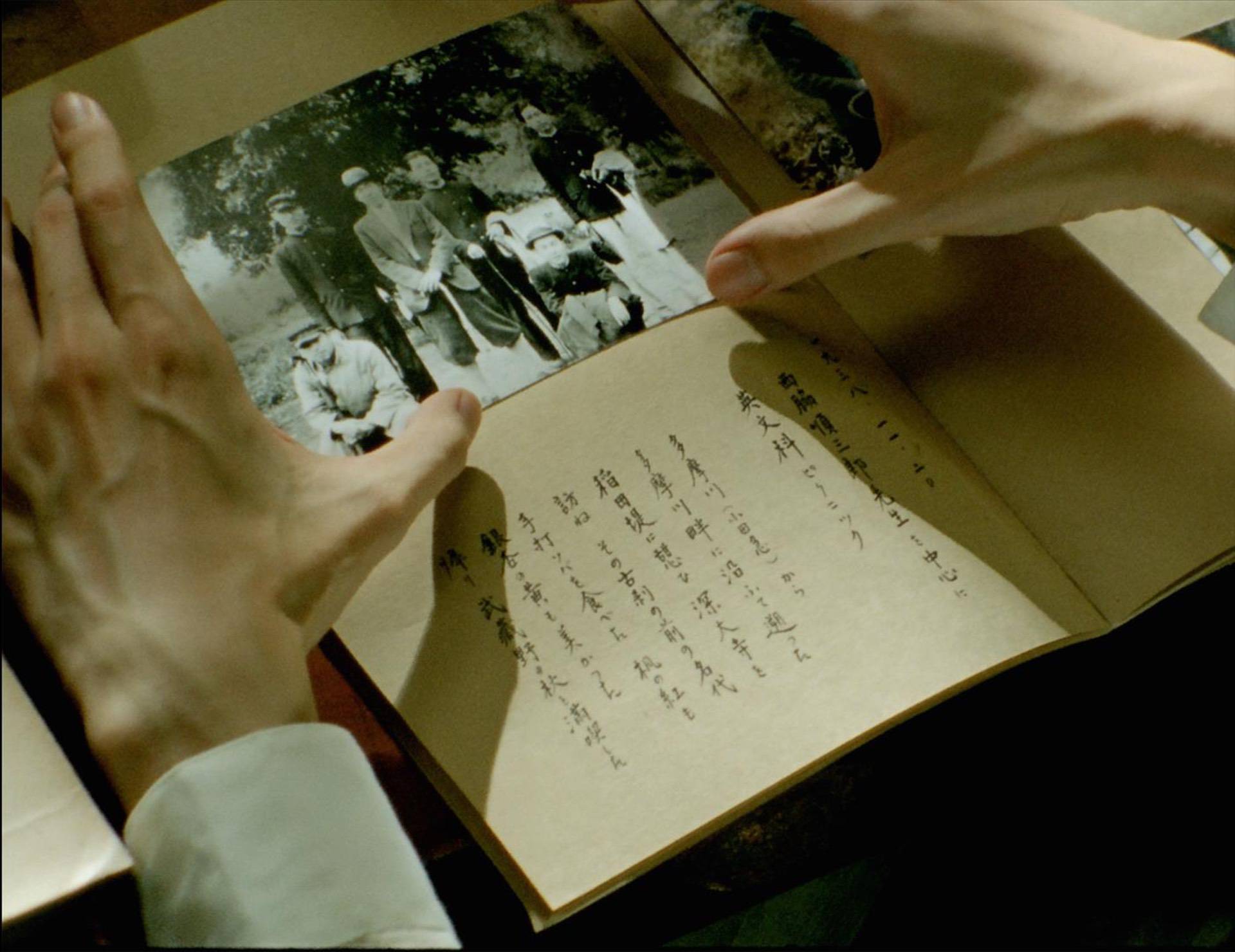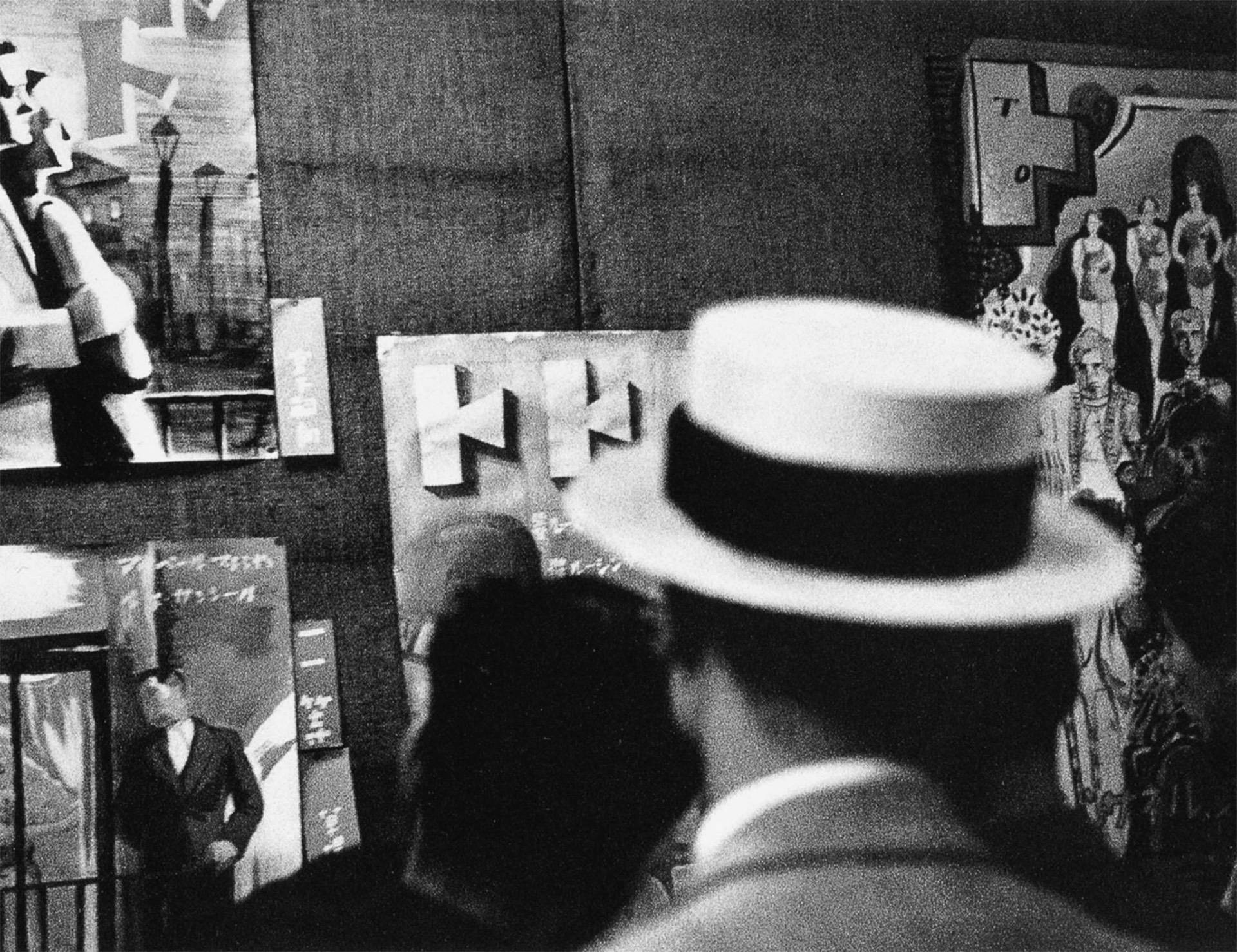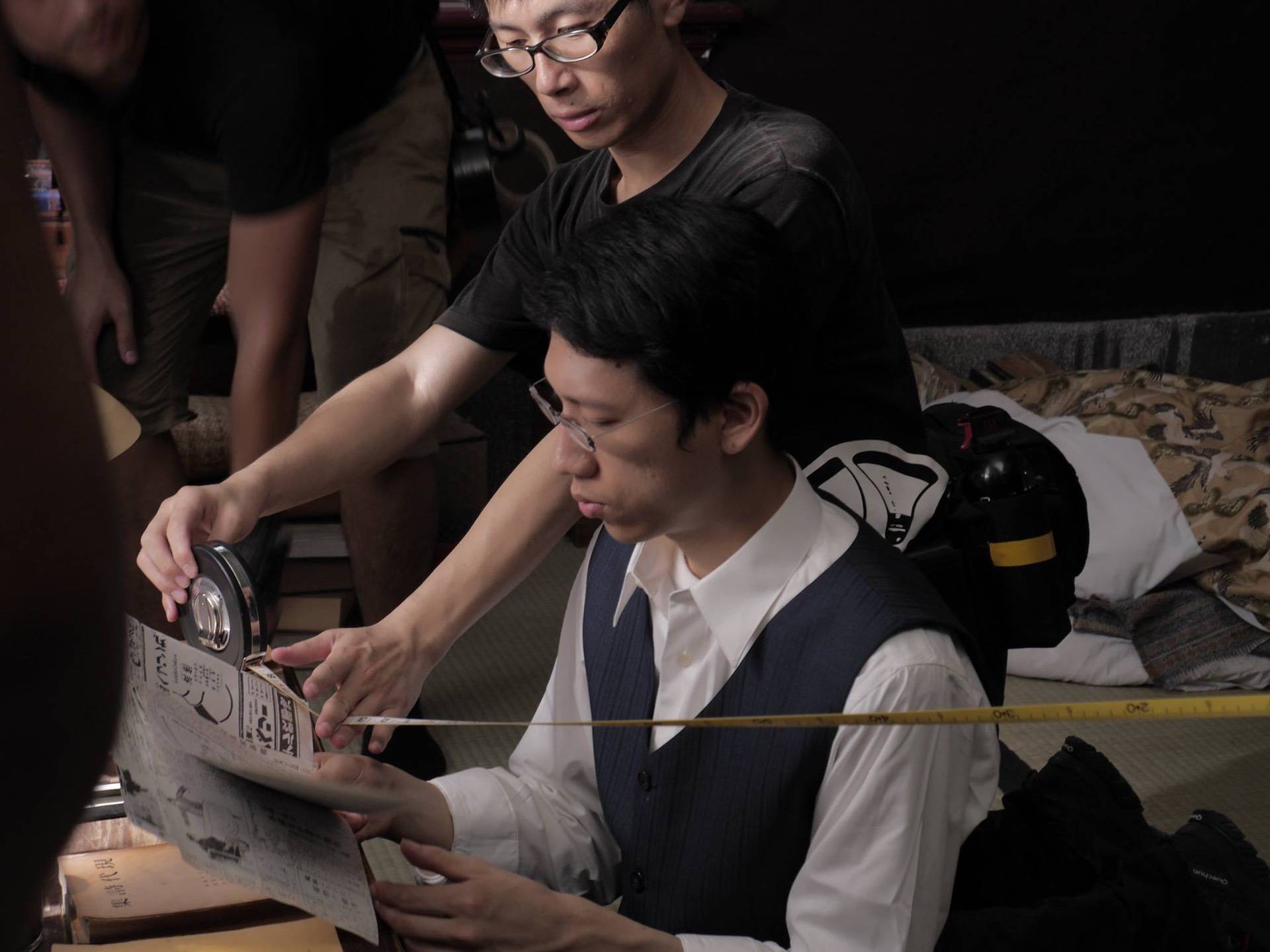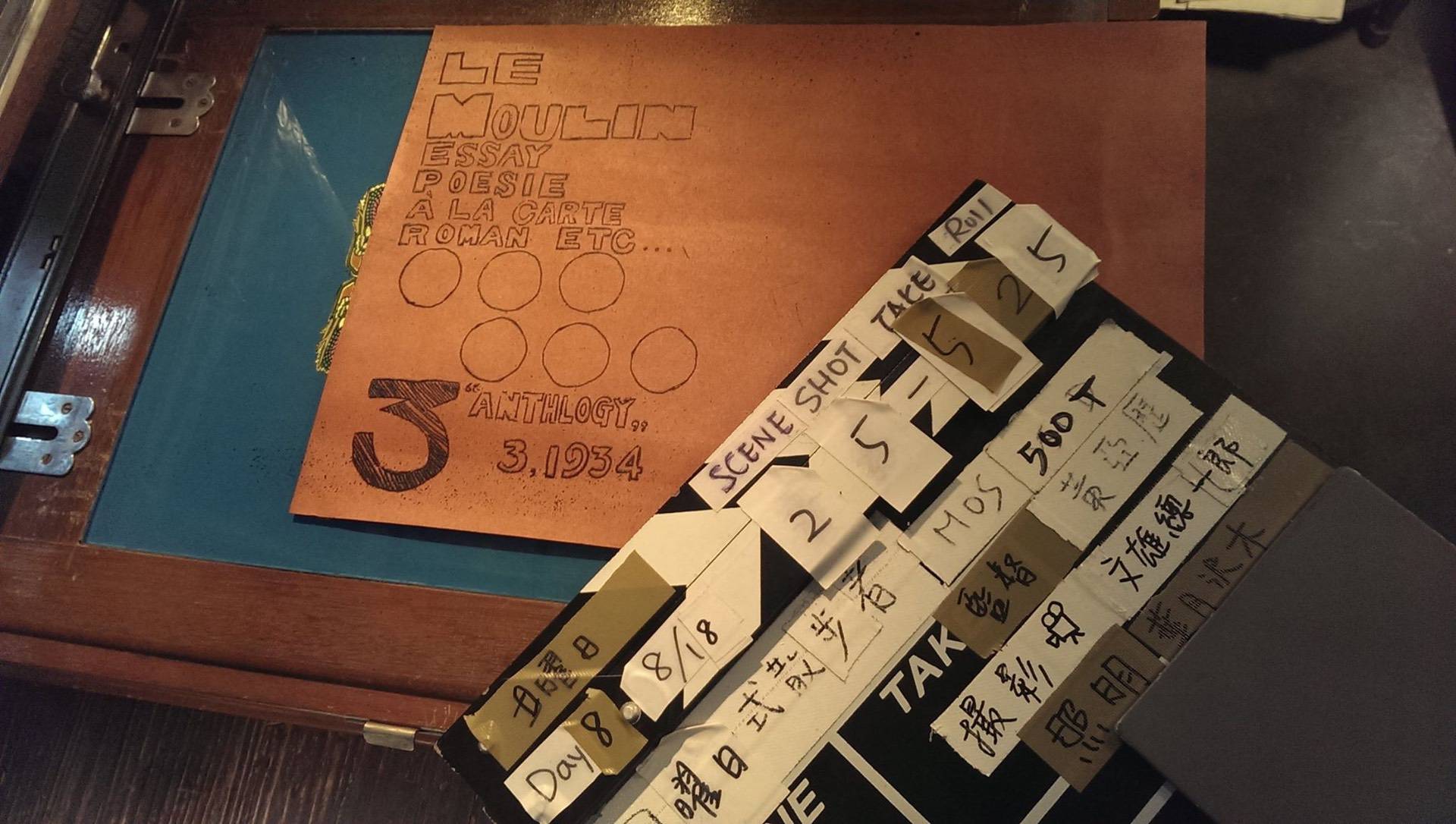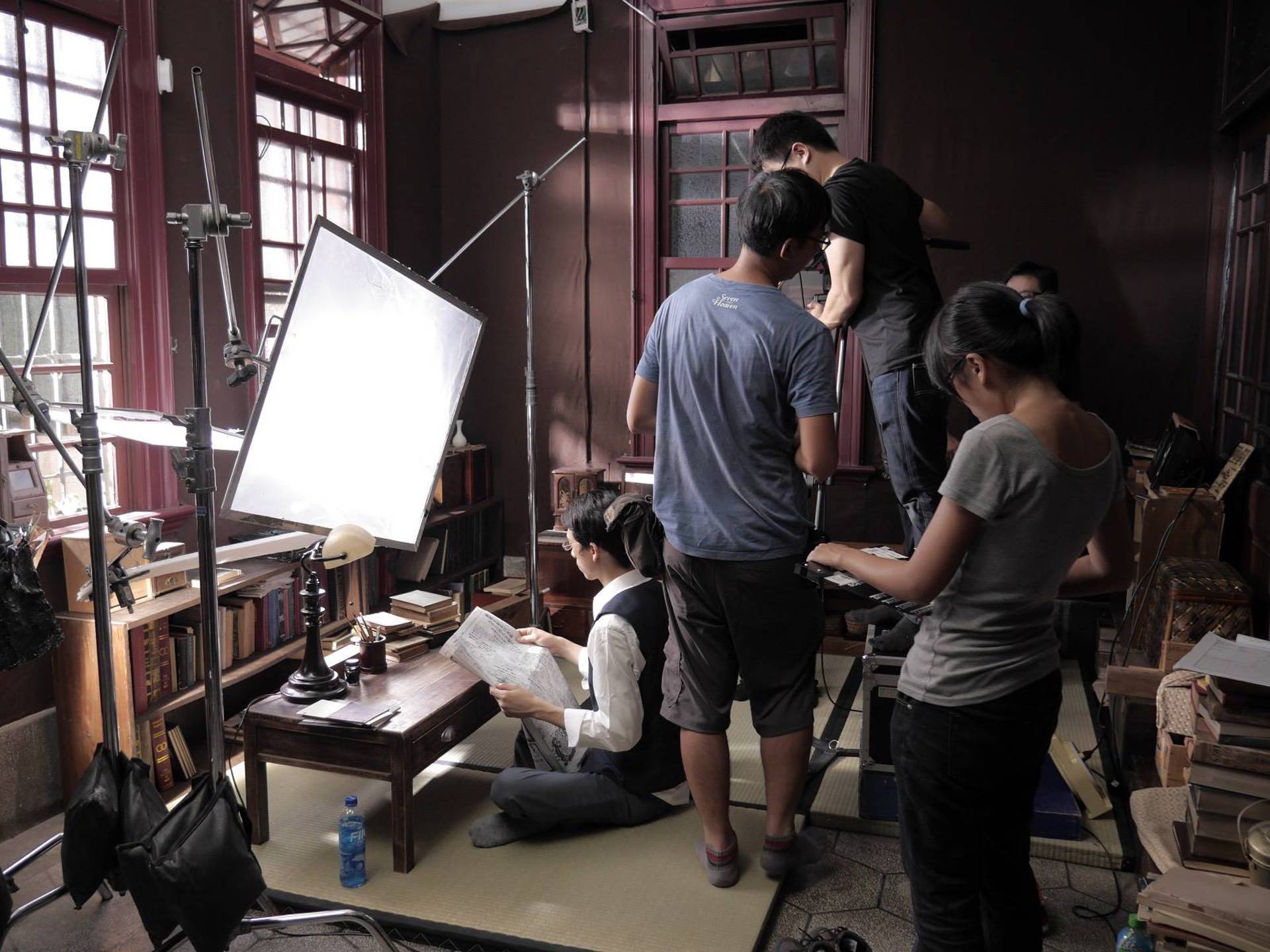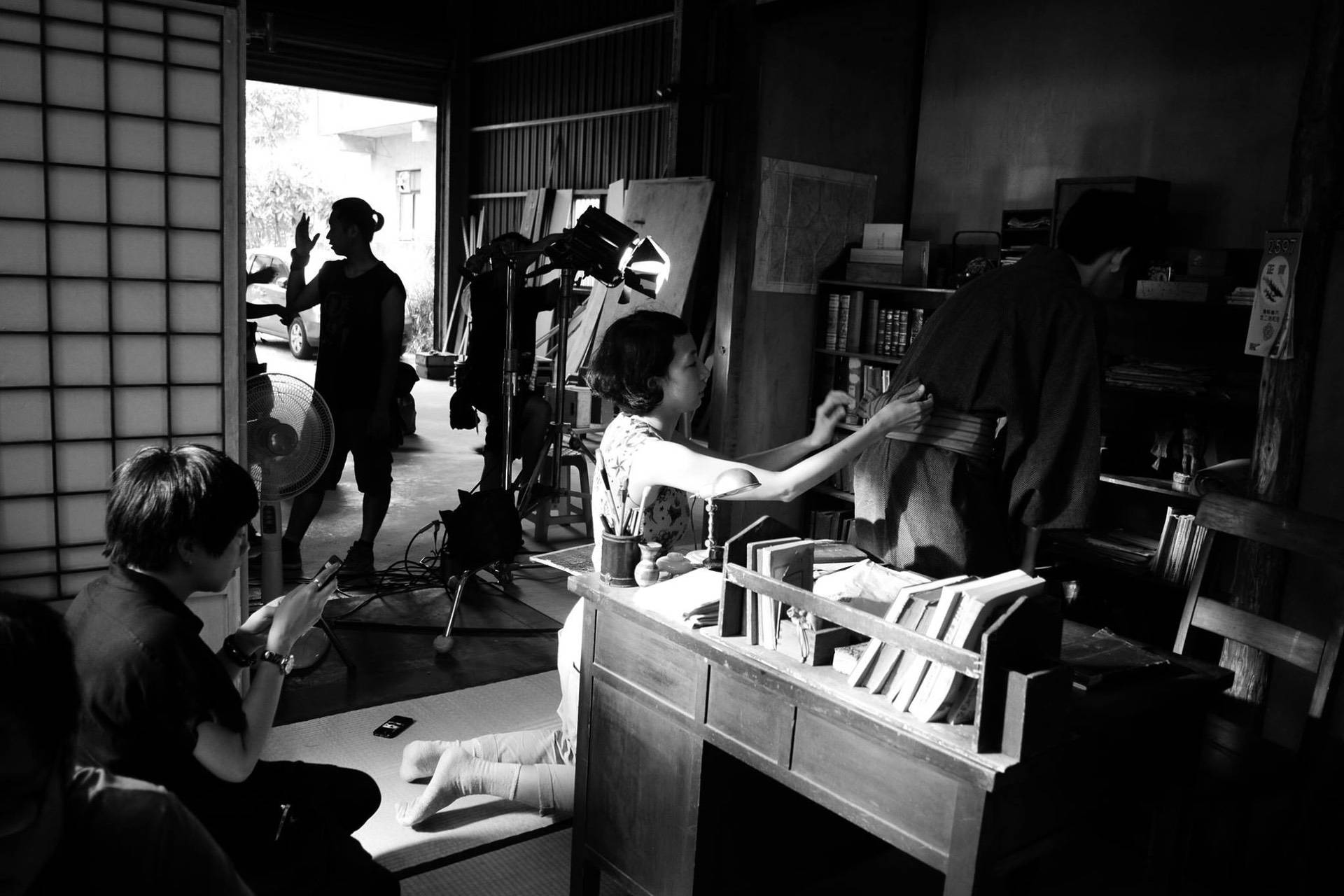Le Moulin
Echoes of Surrealism—Le Moulin Poetry Society
The meaning of what it is to be avant-garde changes constantly, for each generation faces its own problem of “how to deal with tradition”.

Shining a Modernist Light on the Dark Side of History
In the 1930s, after almost 40 years of Japanese colonial rule, Taiwan was in a phase of steady assimilation. It was during this time that the first poetry group to introduce surrealism to Taiwan emerged: Le Moulin Poetry Society.
Le Moulin reflected the path of cultural movement from the West (especially France) to Japan and then to Taiwan, and how Asian intellectuals confronted local and global attitudes after Western modernism had been brought to Asia. What impact did the avant-garde wave of modernist literature have on the young poets of Taiwan? Is it pure imagination that a foreign culture can be received and accepted, or does a hybrid and completely new breed grow from the land where it takes root? Through discourses on their poetics and their literary endeavors, what questions did the modernist writers living on a colonized land leave behind for later generations to reflect upon?
Le Moulin looks back on the avant-garde wave led by the poetry society, its impact on Taiwan’s literary circle in the colonial era, and what Western culture meant for literature in Taiwan.
“If I were to say what was the first difficulty we ran into on this literary path, it is this: The pathetic fact of being a people without a written language or a literary tradition.”——Li Chang-jui, 1935
More Photos from the Set
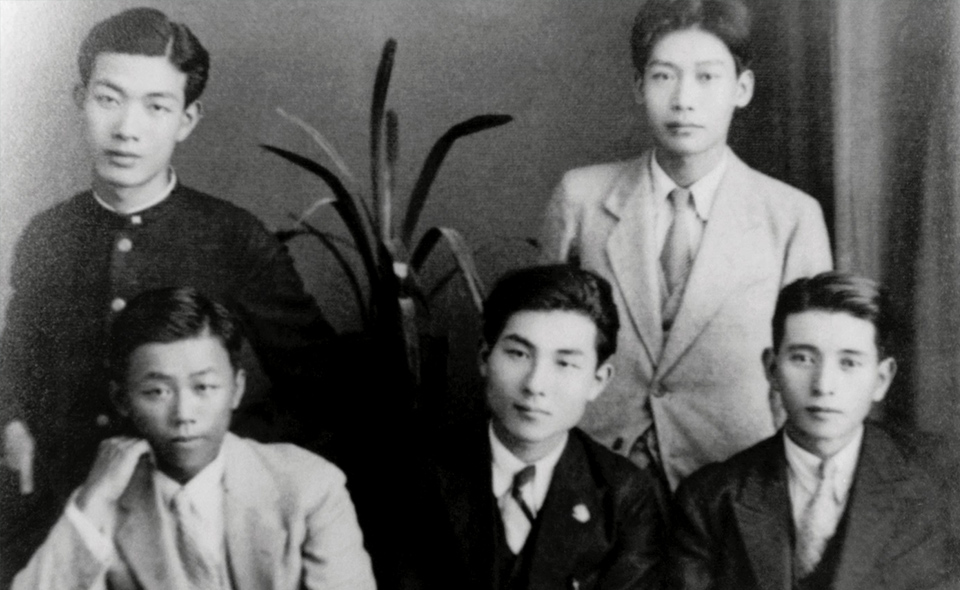
A Short-Lived Poetry Society
In 1933 in Tainan, a group of people centered around Yang Chih-chang, including Li Chang-jui, Lin Hsiu-er, Chang Liang-tien, Toda Fusako and Kisi Reiko, cofounded Le Moulin (“windmill”) Poetry Society, which became a unique presence in the history of Taiwan literature. In terms of aesthetic expression, they were the first to introduce surrealist poetry to Taiwan. Because it was so at odds with the mainstream realist literature at the time, scholars called it “testimony of an erroneous phenomenon”, “strange flower”, or “an existence like a lone rock”, as though it was an aberrant species of new Taiwan literature.
In Taiwan, the 1930s was a period of steady assimilation carried out by the Japanese colonizers. Realist literature that depicted the hard lives of common people was favored. Yet this line of creative work, based on proletariat left-wing ideologies, hindered the development and expansion of poetic expression. Le Moulin was going against the literary winds of the time, holding up French art and culture as ideals, and influenced by the creative vision of Japanese literary figures associated with the journal Poetry and Poetics. They sought to create by thinking beyond the superficial, giving shape to a new poetic vocabulary, thereby allowing modernist poetry to take root in Taiwan.
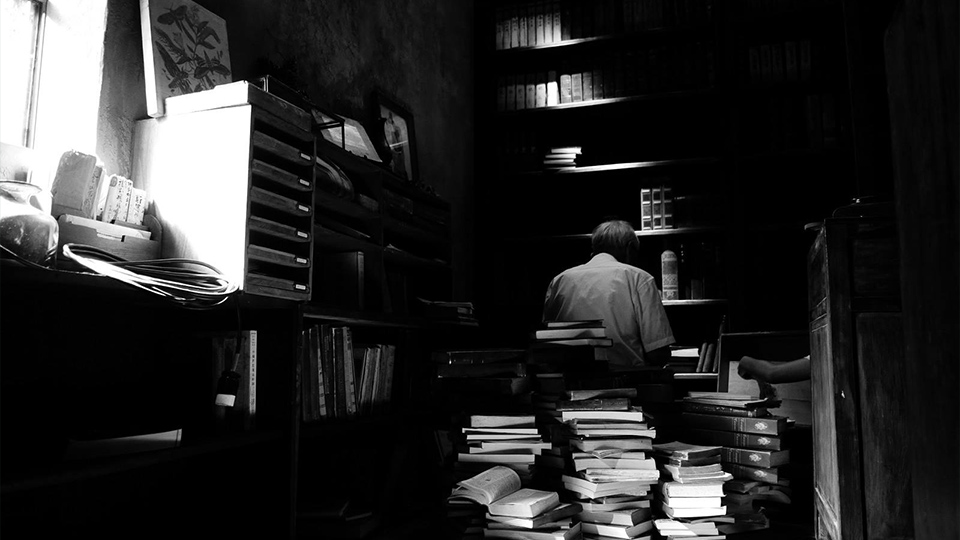
In the 1940s, Taiwan first saw the suppression by the colonial government during the war-time years, then endured the killings and reign of white terror by the Nationalist government after the war ended in 1945. These factors, combined with the discontinuation of a language (Japanese) and the deaths of modernist writers or their self-imposed silence, meant that the surrealist wave did not carry over to the post-war years and influence another generation’s modernist movement. Instead, it was lost, buried beneath layers of history like a beautiful piece of amber. When the short-lived movement was rediscovered in the late 1970s, it still shone bright with the new spirit that it represented in the 1930s.
The poetry society’s journal, Le Moulin, appeared just four times, with only 75 copies printed for each issue, containing poems, poetics, essays and fiction. The journal was discontinued in 1934, and due to the war and political persecution, many of the works were scattered and lost. Only a small number survive today.
Taiwanese Members of Le Moulin

Yang Chih-chang
Pen name Shui-yin-ping. Pioneer who introduced modernist literature to Taiwan. After graduating from the Tainan Second Senior High School (now the National Tainan First Senior High School), Yang Chih-chang left Tainan to study at the Bunka Gakuen (cultural college) in Tokyo. In his free time he often lingered at cafes and soon befriended a number of literary figures. After Le Moulin was discontinued in 1934, he followed his father’s dying wish and passed the exam to work as a reporter at the Taiwan Daily News. In 1947 he was wrongly accused and jailed due to the February 28 Incident.

Li Chang-jui
Pen name Liye Tsang, born in Guanmiao, Tainan County. He was Yang Chih-chang’s classmate at the Tainan Second Senior High School, and also went to study in Japan. He read many works of Western literature, forming a reading club in 1949 to pool funds with colleagues to buy news magazines. He was implicated and arrested because someone from the club had joined an underground party. In late 1952, Chiang Kai-shek changed his sentence at the last minute from fifteen years to death. His family never received the judgement. He was executed at 41.

Lin Yung-hsiu
Pen name Lin Hsiu-er and Nanshan Hsiu. Born in Madou Township, Tainan County. He and Chang Liang-tien were classmates at the Tainan First Senior High School, where he began writing literature. After graduation he went to study in Japan. He mostly wrote modern poems, and sometimes wrote exquisite essays. His creative style leaned towards Japan’s “four seasons school” poetry, using objects to express interior moods, seeking to capture and recall emotions and to channel feelings and mental states through symbolisms. He died of tuberculosis in 1944 at his home in Tainan. He was less than 30.

Chang Liang-tien
Pen name Chiu Ying-er, Chuang Cui Ye. Born in Rende, Tainan County. While studying at medical college, he was invited by Lin Yung-hsiu to join the newly formed Le Moulin Poetry Society. Along with a dozen of his classmates at the medical college, he co-edited one issue of the literary journal Xinglin (“apricot forest”, which refers to fine doctors). He composed prose verse and was influenced by the Japanese Sentimentalist poet Sakutarō Hagiwara, producing works with strong expressions of nostalgia. After the Second Sino-Japanese war he was jailed for several months in connection with the February 28 Incident. He laid down his pen after this, and later founded the Liang Tien Hospital in Tainan.
“Between the lines of their poetry so many imageries fly, vessels for the endless pursuit of the intellectuals living in a colonized land.
The spiritual content of colonial literature was not always caught up in tense moods of resistance.
In their hearts, the colonized writers also longed for emotional realms that were out of their reach and wished to explore them.”——Cheng Fang-ming
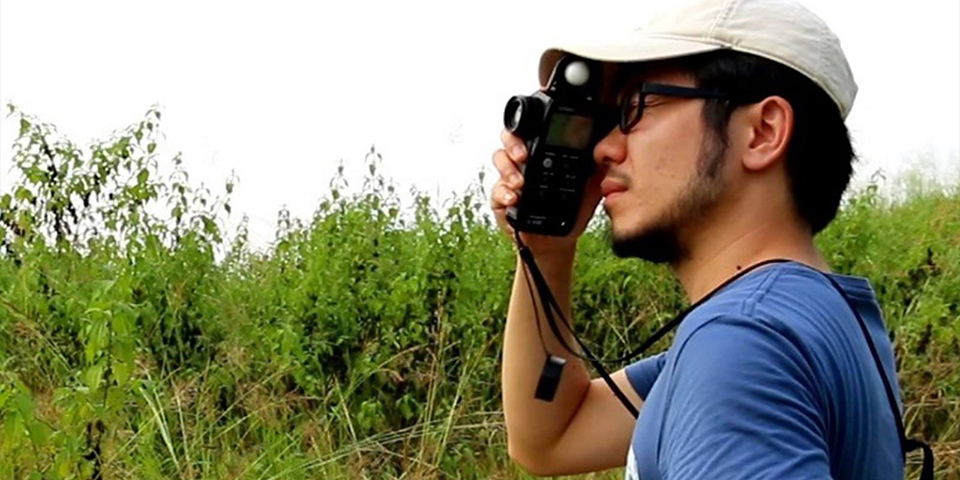
Director Huang Ya-Li
Independent filmmaker. Interested in the connection between and extension of images and sounds. In recent years he has devoted himself to making documentaries about Taiwan during the Japanese colonial period, aiming to explore the possibility of interpreting reality in the form of documentaries through historical research and examination, and to reflect on the relationship between Taiwan, Asia, and the world. Le Moulin won Best Documentary at the 2016 Golden Horse Awards and was screened in the Bright Future section of the International Film Festival Rotterdam.
“I want to explore new possibilities for the documentary film, to bring seemingly dead material alive and able to speak to the audience, to discover what is so fascinating about history. The Le Moulin Poetry Society is an invaluable past, through which I hope to trigger new ways of looking at movies, poetry or poetics.”——Director Huang Yali
More from Behind the Scenes
“As a latecomer to history, we all need chance opportunities to learn about a few names; but we also need good texts if we are to continue the exploration and let historic memories be passed on and continued.”——Chen Yun-yuan, editor of Le Moulin: The Windmill Poetry Society and Its Times
Awards & Praise for Le Moulin




“The film’s use of the symbolism of sounds is masterful—the director successfully recreated that world where the spark of genius had not yet faded.”
——Taipei Film Awards (Best Screenplay / Sound Design)

“Presenting, in poetic form, the dislocation and sorrow caused by the break in Taiwan’s history. Le Moulin experimented with the endless possibilities of documentary film.”
——Taiwan International Documentary Festival (Grand Prize, Taiwan Competition category)




“‘Even short-lived things like blossoms can achieve perfection’, read the closing words onscreen – which happens to sum up this riveting tour de force, a delightful example of avant-garde filmmaking at its finest.”——Lauren Wissot, Filmmaker Magazine
“Intriguing, ambitious attempt.”——CarmenGray, Senses of Cinema
“One of the best Asian documentaries in 2015.”——Matteo Boscarol, Torino Film Festival curator
“An oddly wonderful film worth ‘a sigh in a thousand years!’”——Film critic Li You-hsin
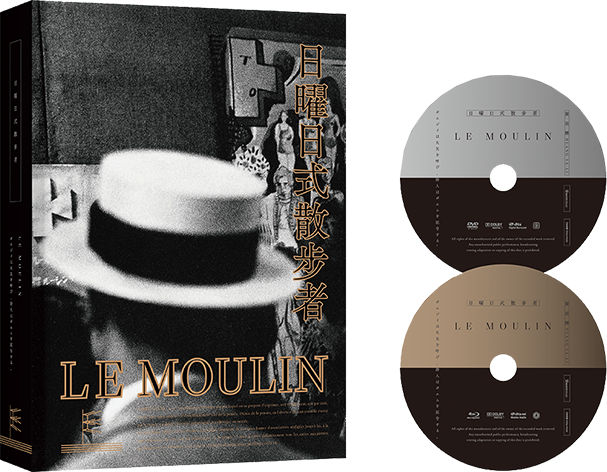
Le Moulin | Collector’s Edition
Language|Mandarin Chinese, Subtitles|Traditional Chinese, Screen Format|16:9
Blu-ray x 1, DVD x 1, Remembering Le Moulin commemorative volume x 1
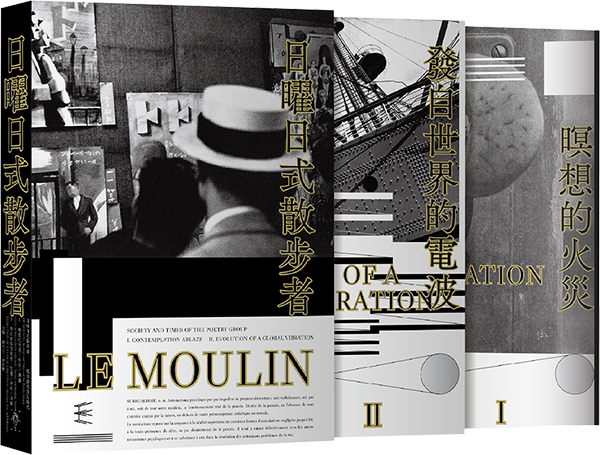
Le Moulin: The Windmill Poetry Society and Its Times
Volume I: Fiery Thoughts is focused on the literature of the poetry society, including the members’ works and reading guides.
Volume II: Waves from Around the World looks at Taiwanese modernist writers in the global context of avant-garde manifestos and poetry from Europe and Japan.
